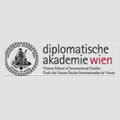Universities in Austria

Academy of Fine Arts Vienna
Vienna, Austria
The Academy of Fine Arts Vienna is a public institution of higher education, based in Vienna, Austria. Established in 1692, the academy takes special pride in its history and the fact that it has been a leading European training center for artists. Being a university, the Academy of Fine Arts Vienna puts great emphasis on organizing a research-driven teaching program. The school receives about 900 students yearly, and is divided into the following institutes: the Institute for Fine Arts, which houses three departments for painting, drawing, visual arts, media, sculpture; the Institute for... See full description.

BBA program in Tourism and Hospitality Management, MODUL University Vienna
Vienna, Austria
MODUL University Vienna (MU Vienna) is a private university based in Vienna, Austria. The school was founded in 2007 to concentrate on Social and Economic Development, and more specifically in the areas of tourism, information technology and public governance. All study programs taught at the school fulfill the accreditation requirements laid out by the Austrian Accreditation Council. All study programs are conducted entirely in English.
The BBA program in Tourism and Hospitality Management taught at the school is aimed at students, who wish to pursue a career in the tourism and... See full description.

Diplomatic Academy of Vienna (DA)
Vienna, Australia
Established in 1754, the Diplomatic Academy of Vienna at Germany is a centre for graduate studies in international affairs, political science, law, languages, history and economics. DA also offers a two year program in Master of Advanced International Studies or Master of Science in Environmental Technology & International Affairs. Also a one year Diploma program is available to students at DA. DA provides opportunities to its students to complete their second year of study at a partner university; institutions offered include John Hopkins University, Tufts University, University of... See full description.

Donau-Universität Krems
Krems, Austria
Danube University was founded in 1995 at Krems an der Donau, Austria. DU specializes in post-graduate academics. DU offers over 200 academic degree programs & courses which then proceed towards Master’s degrees in areas of Health & Medicine, Communication & Globalization, Business & Law, Education & Media and Arts & Architecture. The university is in alliance with global institutions such as the University of British Columbia & the City University of New York. The Austrian parliament formulated a Danube University Act which granted DU university status. Additionally, the business... See full description.

International Business School Vienna
Vienna, Austria
BSc in International Relations and Diplomacy:
Equipped with their specialised international relations skills, the graduates of the BSc in International Relations and Diplomacy are likely to pursue diverse careers in different fields, both abroad and in their home country. The most obvious employers will be government organisations, embassies, foreign representations, ministries, specialised government agencies and international organizations.
Thanks to the large range of skills acquired and the broad background knowledge gained during their studies, graduates of the programme will... See full description.

Montanuniversität Leoben
Leoben, Austria
Montanuniversität Leoben is an institution, located in Leoben, Austria. Their programmes of study are related to the industry, materials and minerals.
Universities in Austria by City:
GrazHallInnsbruckKlagenfurtKremsLeobenLinzPuch bei SalzburgSalzburgViennaWelsAbout universities in Austria
Austria has one of the richest intellectual histories in Europe, so it is no surprise that its universities are excellent. Austria was the home of the world’s first psychologists, Freud and Jung, and it also produced Ludwig Wittgenstein, perhaps the most important philosopher of the 20th century. It is also renowned as a destination for the study of the arts, especially music: Mozart, Haydn, Beethoven, and Schubert all lived and composed in Austria.
The university system itself, which begun in 1365 AD, is the oldest in Germanic Europe. From their earliest days, Austria’s universities, like those throughout Europe, were designed to cater to the sons (and, eventually, the daughters) of privileged families. Royalty, nobles, and other social elites dominated the halls of learning in Austria. All that started to change in the 1960s, when new attitudes were formed regarding the purpose of a university. People began to see institutions of higher learning as having a responsibility to the whole society, not just the elite. This is still the general attitude today, although socio-economic factors still make it harder for poor and middle-class families to send their children to college or university.
The Austrian college and university system has undergone massive changes in the last decade or two. One thing that has been a subject of controversy throughout Austrian society is the question of university fees. Up until 2001 education in Austria was free up to the equivalent of a Bachelor’s Degree. Starting in 2001, however, budget constraints forced the Austrian government to begin instituting fees. Although they are not nearly as expensive as tuition at public colleges in the United States, these fees are still seen as onerous for poor families, and many people see the fees as backsliding into the older view of the university education as a service that only the elite could benefit from. There are efforts being made today to do away with university fees provided that certain conditions are met. Soon, students who do well academically and complete their degrees within the prescribed 4-year period may have the fee requirements waived. Under the proposed system, students who do not do as well or who take longer than four years will have to pay for their studies.
The historically independent Austrian system of higher education is also undergoing changes as a result of the Bologna Process. This process, which has been designed by the authorities of the European Higher Education Area, is designed to integrate the universities of European countries so that their degrees, expectations, and academic requirements are more standardized. The goal is not to make all universities across Europe the same, but rather to ensure that an employer in Belgium can understand and evaluate the educational credentials of an applicant from Poland. In the increasingly open and interconnected job markets of Europe, this is seen as an essential setting of new trans-Continental regulations. In Austria, where degrees have historically been very different from the typical Bachelor’s-Master’s-Doctorate system that dominates in many other places, the Bologna process has necessitated major shifts in the way universities and colleges do their work.
The university system itself, which begun in 1365 AD, is the oldest in Germanic Europe. From their earliest days, Austria’s universities, like those throughout Europe, were designed to cater to the sons (and, eventually, the daughters) of privileged families. Royalty, nobles, and other social elites dominated the halls of learning in Austria. All that started to change in the 1960s, when new attitudes were formed regarding the purpose of a university. People began to see institutions of higher learning as having a responsibility to the whole society, not just the elite. This is still the general attitude today, although socio-economic factors still make it harder for poor and middle-class families to send their children to college or university.
The Austrian college and university system has undergone massive changes in the last decade or two. One thing that has been a subject of controversy throughout Austrian society is the question of university fees. Up until 2001 education in Austria was free up to the equivalent of a Bachelor’s Degree. Starting in 2001, however, budget constraints forced the Austrian government to begin instituting fees. Although they are not nearly as expensive as tuition at public colleges in the United States, these fees are still seen as onerous for poor families, and many people see the fees as backsliding into the older view of the university education as a service that only the elite could benefit from. There are efforts being made today to do away with university fees provided that certain conditions are met. Soon, students who do well academically and complete their degrees within the prescribed 4-year period may have the fee requirements waived. Under the proposed system, students who do not do as well or who take longer than four years will have to pay for their studies.
The historically independent Austrian system of higher education is also undergoing changes as a result of the Bologna Process. This process, which has been designed by the authorities of the European Higher Education Area, is designed to integrate the universities of European countries so that their degrees, expectations, and academic requirements are more standardized. The goal is not to make all universities across Europe the same, but rather to ensure that an employer in Belgium can understand and evaluate the educational credentials of an applicant from Poland. In the increasingly open and interconnected job markets of Europe, this is seen as an essential setting of new trans-Continental regulations. In Austria, where degrees have historically been very different from the typical Bachelor’s-Master’s-Doctorate system that dominates in many other places, the Bologna process has necessitated major shifts in the way universities and colleges do their work.

